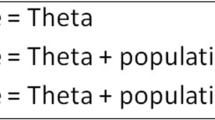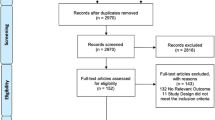Abstract
Background and aims: This study examined the relationship of age and functional ability with comparative (age-referential) and global self-rated health (SRH), and the possible effect of selection bias. The focus is on differences between these questions and on the consequences which these differences have in research. Methods: The data came from the second wave of the Tampere Longitudinal Study on Ageing (TamELSA), consisting of 830 persons aged 60–99 years. The associations of both self-rated health measures with age and functional ability were examined using multinomial regression analyses. Results: People with increasing age, particularly over 80-year-old, are inclined to rate their health better than that of their age peers. The association of older age with better comparative SRH became even stronger after adjustment for functional ability, chronic diseases and sociodemographic factors. The relation of older age with global SRH was weaker than that with age-referential SRH. By contrast, functional ability was more strongly associated with global than with comparative SRH. Conclusions: Our results suggest that comparative and global self-rated health cannot be used interchangeably. The comparative measure is more strongly “calibrated” by age. Therefore, when SRH is used as a measure in survey studies or in clinical settings, the global question should be preferred.
Similar content being viewed by others
References
Mossey J, Shapiro E. Self-rated health: a predictor of mortality among the elderly. Am J Public Health 1992; 72: 800–8.
Idler EL, Benyamini Y. Self-rated health and mortality: a review of twenty-seven community studies. J Health Soc Behav 1997; 38: 21–37.
Benyamini Y, Leventhal E, Leventhal H. Self-assessments of health. What do people know that predicts their mortality? Res Aging 1999; 21: 477–500.
Appels A, Bosma H, Grabauskas V, Gostautas A, Sturmans F. Self-rated health and mortality in a Lithuanian and Dutch populations. Soc Sci Med 1996; 42: 681–9.
Heidrich J, Liese AD, Löwell H, Keil U. Self-rated health and its relation to all-cause mortality and cardiovascular mortality in Southern Germany. Results from the MONICA Augsburg Cohort Study 1984–1995. Ann Epidemiol 2002; 12: 338–45.
Grand A, Grosclaude P, Boquet H, Pous J, Albarede JL. Disability, psychosocial factors and mortality among the elderly in a rural French population. J Clin Epidemiol 1990; 43: 773–82.
Leung K-K, Tang L-Y, Lue B-H. Self-rated health and mortality in Chinese institutional elderly persons. J Clin Epidemiol 1997; 50: 1107–16.
Manderbacka K, Kareholt I, Martikainen P, Lundberg O. The effect of point of reference on the association between self-rated health and mortality. Soc Sci Med 2003; 56: 1447–52.
Idler E, Kasl SV. Self-ratings of health; Do they also predict change in functional ability? J Gerontol 1995; 50B: S344–53.
Vuorisalmi M, Lintonen T, Jylhä M. Global self-rated health data from a longitudinal study predicted mortality better than comparative self-rated health in old age. J Clin Epidemiol 2005; 58: 680–7.
Baron-Epel O, Kaplan G. General subjective health status or age-related subjective health status: does it make a difference? Soc Sci Med 2001; 53: 1373–81.
Manderbacka K, Lundberg O. Examining points of reference of self-rated health among the Swedish oldest old. Arch Gerontol Geriatr 1996; 23: 47–60.
Jylhä M. Self-rated health in old age. Acta Universitatis Tam- perensis, Ser. A, Vol. 195, University of Tampere, 1985.
Moum T. Self-assessed health among Norwegian adults. Soc Sci Med 1992; 35: 935–47.
Johnson RJ, Wolinsky FD. The structure of health status among older adults: disease, disability, functional limitation and perceived health. J Health Soc Behav 1993; 34: 105–21.
Farmer M, Ferraro KF. Distress and perceived health: Mechanisms of health decline. J Health Soc Behav 1997; 39: 298–311.
Jylha M, Guralnik JM, Balfour J, Fried LP. Walking difficulty, walking speed, and age as predictors of self-rated health: The Women’s Health and Aging Study. J Gerontol 2001; 56A: M609–17.
Leinonen R, Heikkinen E, Jylhä M. Predictors of decline in self- assessments of health among older people - a 5-year longitudinal study. Soc Sci Med 2001; 52: 1329–41.
Idler EL. Age differences in self-assessments of health: Age changes, cohort differences, or survivorship? J Gerontol 1993; 48: S289–300.
Tissue T. Another look at self-rated health among the elderly. J Gerontol 1972; 27: 91–4.
Tornstam L. Att aldras. Socialgerontologiska perspektiv. Up- sala, 1973.
Shanas E, Townsend P, Wedderburn D, Friis H, Milhoj P, Ste- houwer J. Old people in three industrial societies. London, Rout- ledge & Kegan Paul, 1968.
Heikkinen E, Waters E, Brzezinsky ZJ. The elderly in eleven countries. A sociomedical study. Series Public Health in Europe. Copenhagen, World Health Organization, 1983.
Dening T, Chi L-Y, Brayne C, Huppert F, Paykel E, O’Connor D. Changes in self-rated health, disability and contact with services in a very elderly cohort: a 6-year follow-up study. Age Ageing 1998; 27: 23–33.
Jylhä M, Jokela J, Tolvanen E, et al. The Tampere Longitudinal Study on Ageing. Description of the study. Basic results on health and functional ability. Scan J Public Health 1992 (Suppl 47), University of Tampere.
Jylhä M, Jokela J, Heikkinen E. Health-related quality of life in the elderly in 1979 and 1989. A birth cohort comparison in Tampere, Finland. In Ferrucci L, Heikkinen E, Waters E, Baroni A, eds. Health and quality of life in older Europeans. Copenhagen: INRCA and WHO, 1995.
Rakowski W, Mor V, Hiris J. An investigation of nonreponse to self-assessments of health by older persons. J Aging Health 1994; 6: 469–88.
Author information
Authors and Affiliations
Corresponding author
Rights and permissions
About this article
Cite this article
Vuorisalmi, M., Lintonen, T. & Jylhä, M. Comparative vs global self-rated health: associations with age and functional ability. Aging Clin Exp Res 18, 211–217 (2006). https://doi.org/10.1007/BF03324651
Received:
Accepted:
Published:
Issue Date:
DOI: https://doi.org/10.1007/BF03324651




